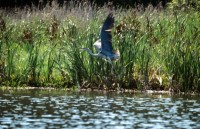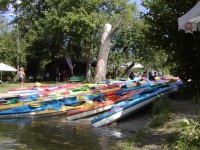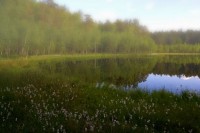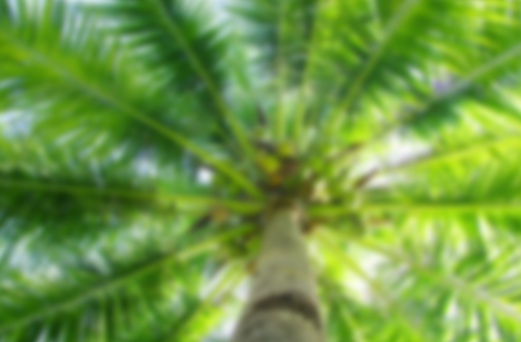I went to Masuria just a few years after the Wall fell, maybe 1993. Trips since then have had varying degrees of influence over my psyche, but this trip was early on in my ongoing career as a traveler, so I will remember Masuria forever. Masuria is in northeastern Poland, just west of Russia and right smack in the middle of what was once old Prussia. This area took a long time to conquer and “civilize” and once it was brought under the sway of Christendom, it was largely forgotten and allowed to be what it is: wild.
 The Poles call it the Land of 10,000 Lakes and it might be even more by now. The glaciers melted a long time ago, but since then the waters have ebbed and flowed so much that even in the past 500 years the land has changed. Masuria is a favorite for college students taking their summers off to canoe, kayak and sail through the interconnected waterways and lakes of the region. Most every night there are campfires and sing alongs with bottles of vodka, sausages and bread scattered around the lakes.
The Poles call it the Land of 10,000 Lakes and it might be even more by now. The glaciers melted a long time ago, but since then the waters have ebbed and flowed so much that even in the past 500 years the land has changed. Masuria is a favorite for college students taking their summers off to canoe, kayak and sail through the interconnected waterways and lakes of the region. Most every night there are campfires and sing alongs with bottles of vodka, sausages and bread scattered around the lakes.
Masuria is a camping area. The only way to really be there is to bring your camping gear and pick a spot or take a guided kayaking tour. The town of Olsztyn (Oldstein) is the only one in the area and it is more than 20% forest land with13 lakes in the city’s administrative region. Olsztyn itself is a grey town that is slowly digging itself out of 20th century ruin. The Nazis and the Russians both took their turns with the town, turning the old town into rubble and then the outskirts into vast work unit-style factory suburbs.
 If you are interested in an off the beaten path trip that involves a small bit of hiking, camping and kayaking, you can do it yourself or book with a guide company such as AS Tours that specialize in kayaking and canoeing. If you would rather find a lakeside resort and hotel with access to bike paths and wonderful restaurants with freshly caught fish, then a good resource for hotel information is StayPoland’s Masuria section, which has a list of dozens of hotels and B&Bs with contact info. Ecotourism is still in its infant stages in Eastern Poland, which is both a boon and a bane, depending on your outlook. All options take advantage of (and revolve around) the central attractions: wilderness and water.
If you are interested in an off the beaten path trip that involves a small bit of hiking, camping and kayaking, you can do it yourself or book with a guide company such as AS Tours that specialize in kayaking and canoeing. If you would rather find a lakeside resort and hotel with access to bike paths and wonderful restaurants with freshly caught fish, then a good resource for hotel information is StayPoland’s Masuria section, which has a list of dozens of hotels and B&Bs with contact info. Ecotourism is still in its infant stages in Eastern Poland, which is both a boon and a bane, depending on your outlook. All options take advantage of (and revolve around) the central attractions: wilderness and water.
 On that first trip to Masuria, I was just a kid tagging along with my best friend Filip and his family, who are from Slupsk, north of Masuria. We camped out for two weeks alongside one of the lakes outside of Elk, the central town besides Olsztyn, and went mushroom hunting and sailing every day. The mushrooms in Masuria still make me drool when I think of them. My friend’s dad sauteed them in a little butter and served them up with a bit of salt. Do not leave Masuria without eating some local mushrooms.
On that first trip to Masuria, I was just a kid tagging along with my best friend Filip and his family, who are from Slupsk, north of Masuria. We camped out for two weeks alongside one of the lakes outside of Elk, the central town besides Olsztyn, and went mushroom hunting and sailing every day. The mushrooms in Masuria still make me drool when I think of them. My friend’s dad sauteed them in a little butter and served them up with a bit of salt. Do not leave Masuria without eating some local mushrooms.
We did not tour too much, basically sticking to the lake nearby and sailing around. Every two days or so a group of students would dock up by our camp and we would drink with them until they left, and then wait for the next group to come by. It was a fine way to spend a summer.
But for a vacationer, there might be more on your agenda. Check out Mikolajki, the third town down in size after Olsztyn and Elk, and enjoy the comforts and rowdiness of a town that makes its living off of docks and bars. Once in Mikolajki, you are on the “road” that leads around Masuria, from the old fortresses of the Teutonic Knights to the private game reserve between Mikolajki and Ruciane-Nida. From here you can easily get a spot on a kayak heading down the regions biggest river, the Krutynia River, or a leisurely boat ride around Sniardwy Lake.
If you are on a European tour, hauling all of your camping gear might be slightly annoying, but if you have the means to check out less traveled (by Westerners) parts of Europe, then regions like Masuria in Poland might warrant a devoted trip.


Comments